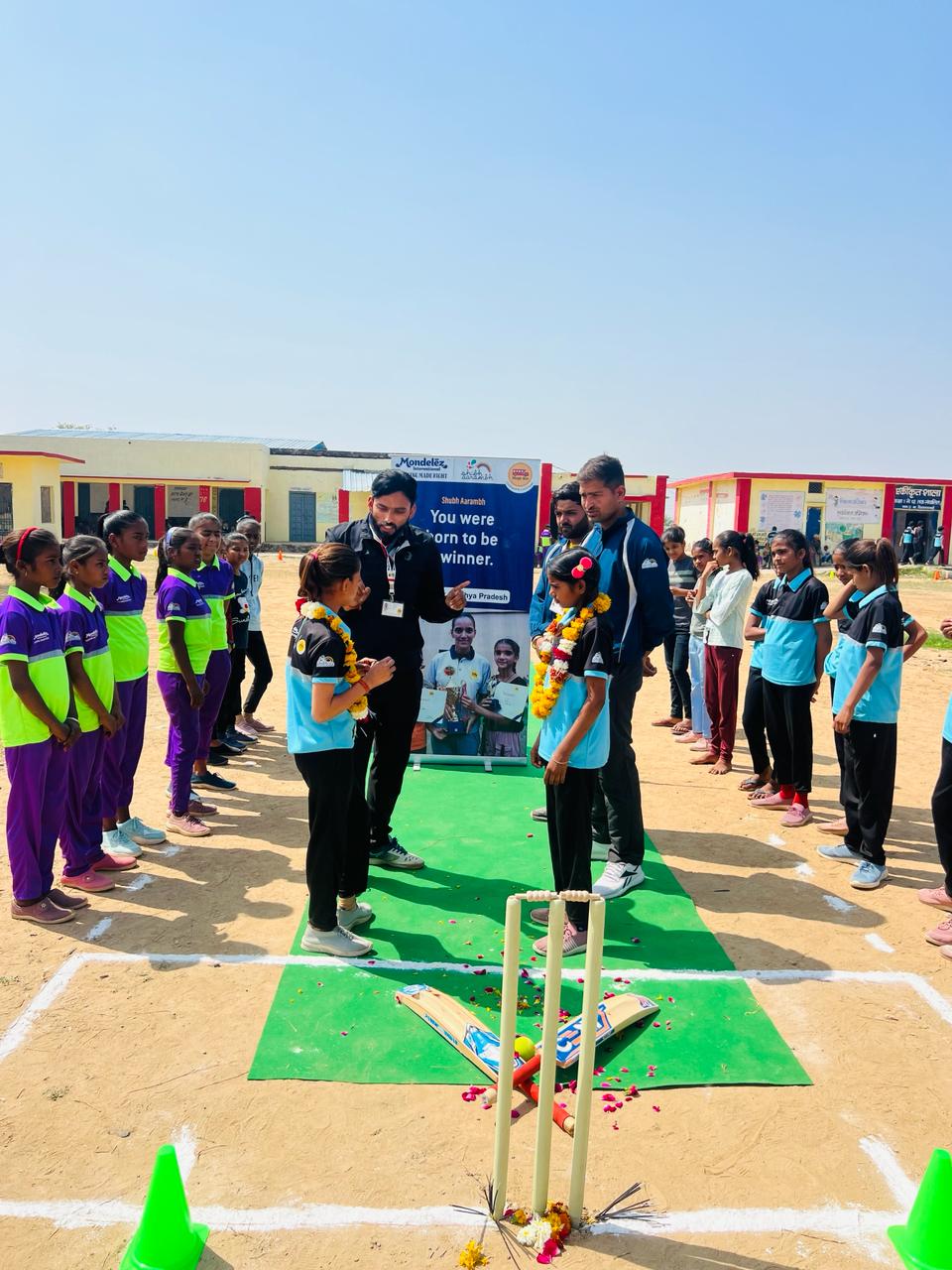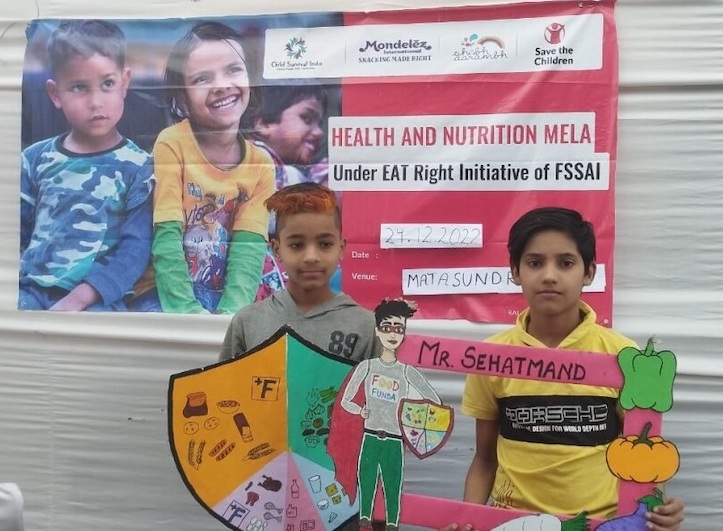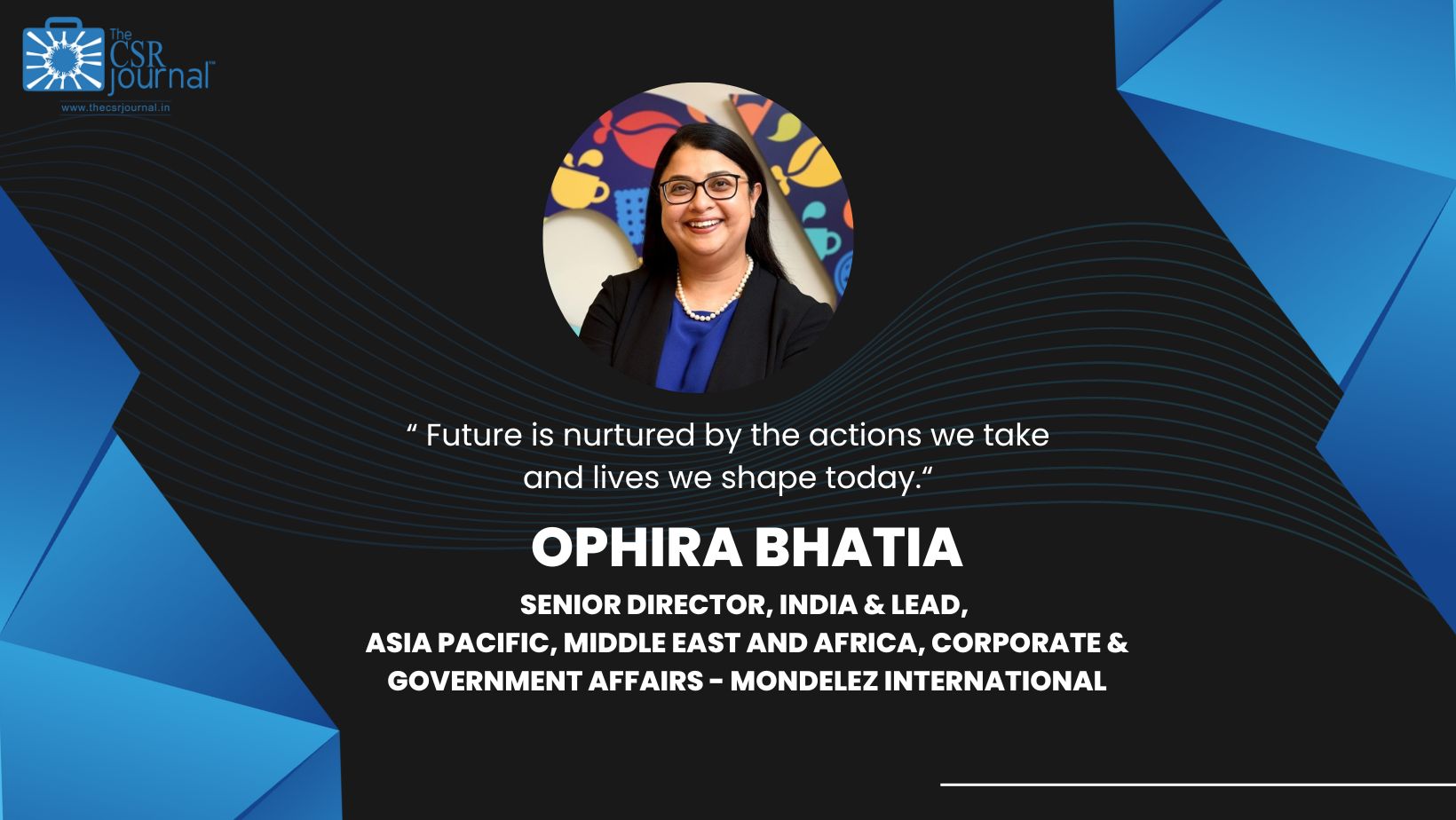Healthy population is productive population. For the socioeconomic development of a country it is essential that health and well-being of its population is looked after. In an exclusive interaction with The CSR Journal, Ms. Ophira Bhatia, Senior Director, India & Lead, AMEA, Corporate & Government Affairs shares the impactful story of Mondelez’s involvement in supporting 200 Health and Wellness Centers (HWCs) across four strategic locations, aligning with the Ayushman Bharat Health and Wellness Centers initiative.
1. How does Mondelez prioritize ESG factors in its business operations, and what mechanisms are in place to ensure adherence to these principles across its global operations, including in India?
As a company, we are guided by our purpose to empower people to snack right, and our ambition to build a more sustainable snacking company. We take a strategic long-term approach to our environmental, social and governance (ESG) goals. We call this Snacking Made Right i.e., offering the right snack, for the right moment, made the right way.
Sustainability is the fourth pillar of our global strategy – with Growth, Execution and Culture. Our key sustainability focus areas include ingredients, packaging, social impact, climate and environment, diversity, equity and inclusion, mindful snacking and employee well-being. We have set clear 2025 and 2030 goals that put us on the path to pursue bold long-term ambitions.
Globally, our ESG related strategy, progress, risks etc. is overseen by our Board of Directors. Additionally, our annual Snacking Made Right Report is part of our wider goal to provide transparent and measurable information for our stakeholders on our goals, policies, initiatives, and programs through ESG reporting.
In our India business unit, our sustainability efforts have earned us high-profile recognition. A great example is the Sri City factory in Andhra Pradesh, which is one of the first Indian FMCG plants to receive the World Economic Forum’s fourth Advanced Industrial Revolution (4IR) ‘Digital Lighthouse award’. The award is presented to top manufacturing facilities for their enhanced operational performance and environmental sustainability. We have also invested in the Circulate Capital Ocean Fund (CCOF) focused on addressing India and Southeast Asia’s plastics challenges through our impact investment platform Sustainable Futures.
And three out of our four manufacturing plants in India run on 100% renewable electricity.
2. Can you discuss any recent CSR initiatives or projects undertaken by Mondelez India that have made a tangible positive impact on local communities or the environment?
We believe that the path to creating meaningful and lasting change begins by collaborating with our communities, and that the future is nurtured by the actions we take and lives we shape today. Our flagship initiative, ‘Shubh Aarambh,’ has been a cornerstone of our CSR efforts for over a decade. The program spans across eight states / locations — Himachal Pradesh, Madhya Pradesh, Maharashtra, Andhra Pradesh, Telangana, Tamil Nadu, Kerala as well as Delhi—and has impacted the lives of over 100,000 beneficiaries. This program focuses on driving nutrition education, active play among 7–14-year-old children and takes a holistic view of our communities. Adolescents enrolled in Shubh Aarambh’s sports for development program over the last decade reported a positive improvement on the comfort levels to play in diverse groups, scale of resilience, perceived self-efficacy, decision-making skills, self-management skills, and problem-solving skills among others. They have also reported a regular increase in sports and physical activity participation.

Shubh Aarambh also focuses on healthcare and in upgrading the infrastructure facilities in these communities including providing safe drinking water, planting trees among others. Shubh Aarambh, in line with the government’s vision of Ayushman Bharat, which seeks to provide comprehensive healthcare, Mondelez India upgraded and equipped 200 health and wellness centres in these areas. Additionally, we have trained over 400 healthcare workers to drive sustainability into the program.
As part of Food Safety and Standards Authority of India’s (FSSAI) Eat Right Schools initiative, last year, Mondelez India empowered 200 schools pan India, impacting nearly 100,000 beneficiaries which includes 45,000 students. This year the company will be empowering an additional 75 schools to attain the ‘Eat Right School’ status across Mumbai and Sindhudurg.



